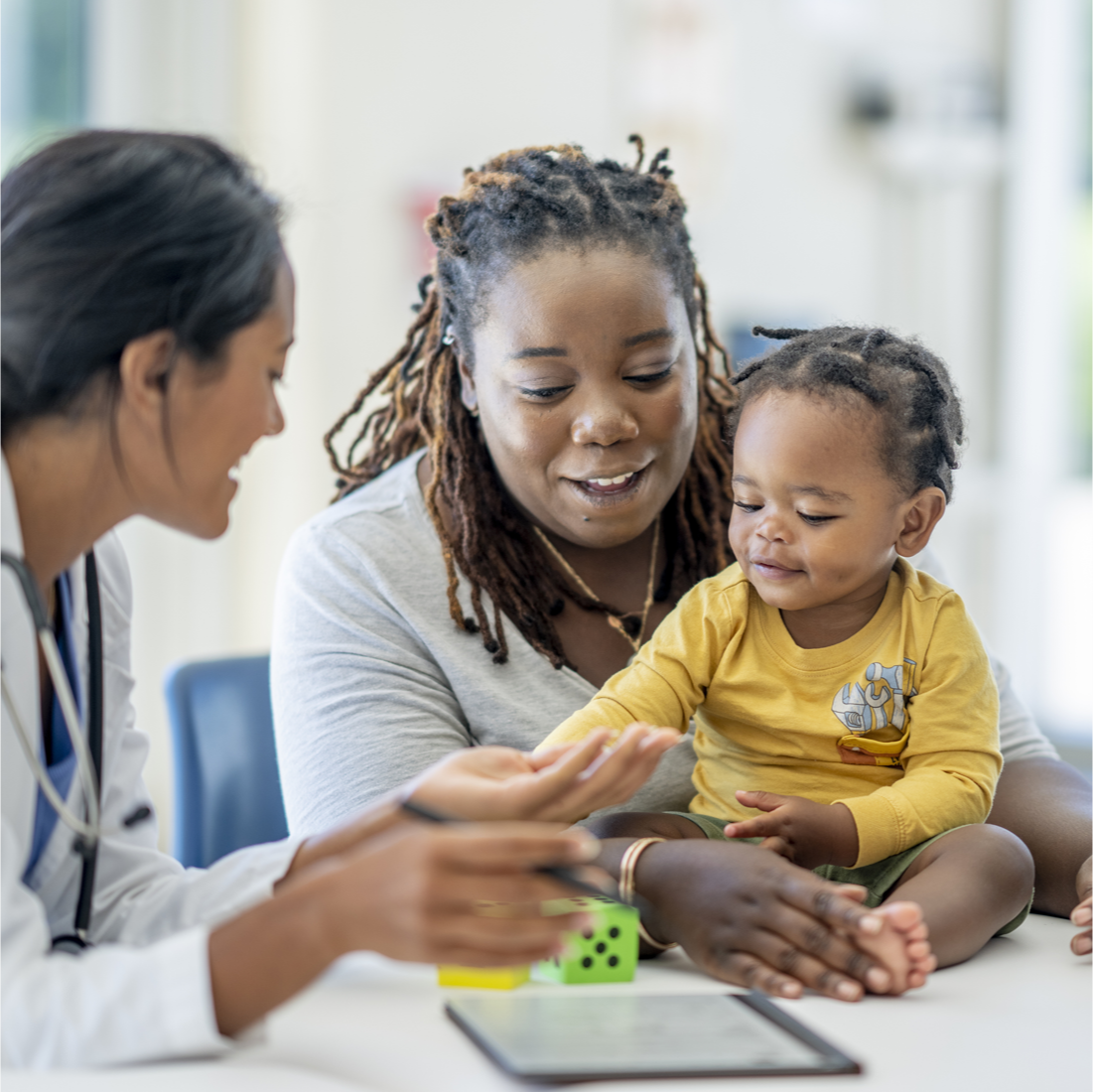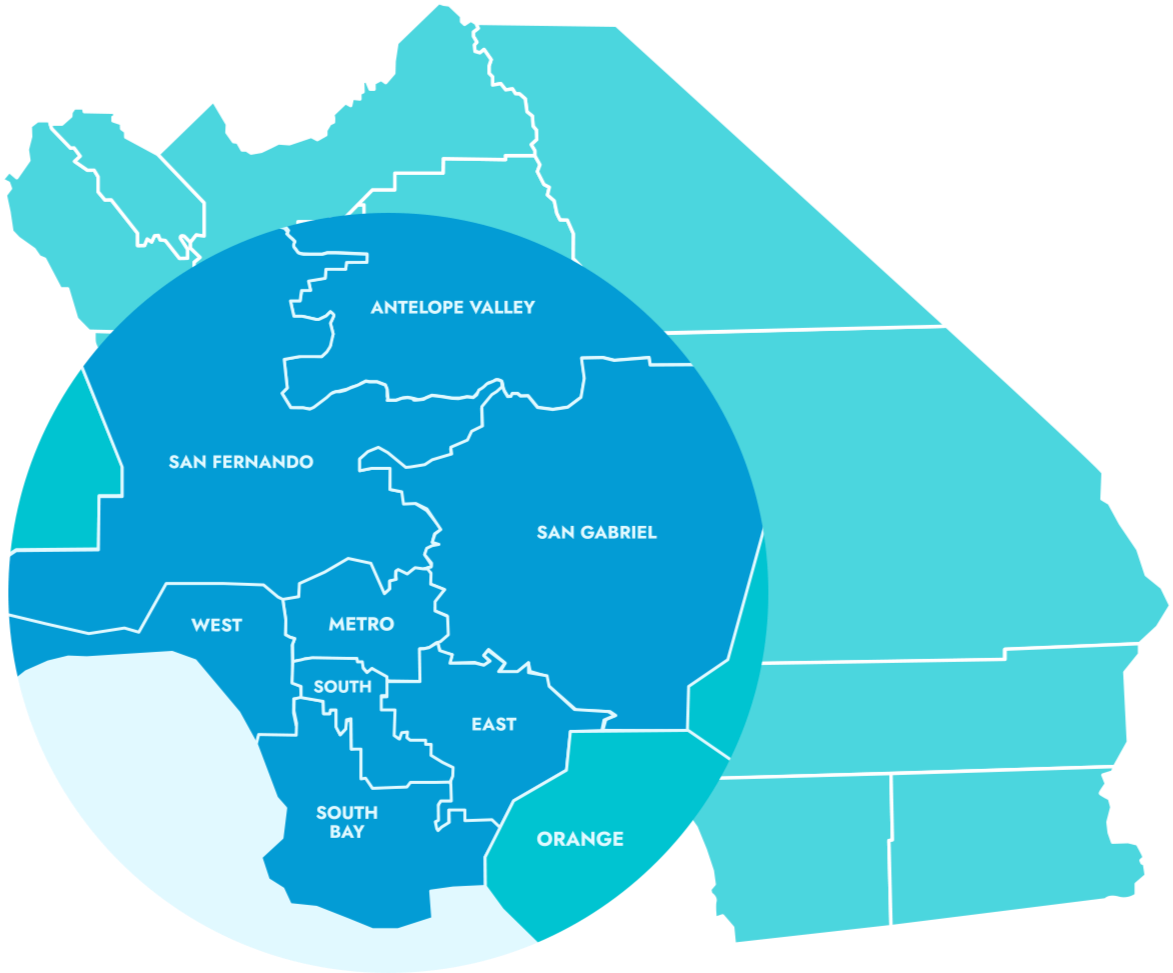A Beacon of Health
Health Care LA, IPA brings access to quality care to Los Angeles County residents who need it most.

Quick Links
If you need to check on a referral, need help finding a local provider, or if you have questions, please call our customer service department.
(818) 702-01000M – F, 9:00 a.m. – 5:00 p.m. PST
We Cover LA County
Health Care LA, IPA (HCLA IPA) is a not-for-profit network of Federally Qualified Health Centers (FQHCs) and Community Health Centers (CHCs). For more than 30 years, we have been a stable, respected force guiding health centers to better care delivery and patients to better health. Our priority is to drive quality, whole-patient, value-based health care in a way that ensures care access and equity within our diverse, underserved communities.
We address not only members' medical needs but also social determinants like housing, transportation, and resource and food insecurity that impede them from accessing care.
We work with a wide variety of health insurers to encompass coverage for all patient demographics within LA County.
We care for more Medi-Cal beneficiaries than any other Independent Physician Association in the entire state of California.
Learn more about our unique approach to community care access and equity
Our expansive provider network makes it convenient for our 600,000+ members to access quality care, no matter where in LA County they work and live. Together, our network represents a significant segment of Los Angeles County’s healthcare delivery safety net, with:
30+ Health Centers
1,000+ Primary Care Physicians
163 Practice Locations
3,000 + Specialty Care Providers
25+ Urgent Cares
24+ Hospitals
(including most major hospitals in LA County)

We believe quality healthcare is a right, and easy access is a goal.
As the managed care landscape grows ever more complex, HCLA IPA has the experience and agility to meet the evolving needs of our health centers and patient population, not just today but well into the future.
Our Mission: To provide community-based providers in Los Angeles County with a managed, integrated healthcare delivery system to serve their communities in an organized, efficient, compassionate, and financially responsible manner.



Network Benefits
HCLA IPA guides and supports our network of health centers to deliver quality, accessible health care by:
Coordinating care and expanding access to specialized programs to improve health and wellbeing.
Removing barriers to care by addressing complex social determinants that impact community health.
Focusing on whole-person care, not just each patient's current medical condition.
Reinvesting in our health center partners by providing new income streams and grants and mobilizing community resources.
This approach greatly expands access, ensures care equity, and advances health and wellness for underserved, at-risk, and vulnerable patient populations.
We Support and Collaborate with Stable Medical Homes
Our partner health centers provide reliable comprehensive, quality primary care within their communities, effectively serving as medical homes. You can think of a medical home like a healthcare supermarket where patients and their families can go—close to their work and home lives—to get the care and services they need to sustain better health. This centralized care is the most critical component of a healthcare safety net and demands expertise, reach, and resources that private physician offices and smaller medical practices cannot supply on their own. Healthcare LA, IPA works on multiple fronts to help by:
Building partnerships with local specialists, hospitals, and community resources, enabling our medical homes to coordinate comprehensive whole-person care.
Leveraging grants and additional funding streams to support program, technological, and operational innovations that improve care access, quality, and efficiency.
Together with our partner health centers, we've built a sustainable medical home model that ensures all of our members in Los Angeles County have access to stable, compassionate, and effective care.
Curated Clinical Resources
Our partner health centers consistently rank HCLA, IPA above the competition for our white-glove approach to pulling together the optimal mix of informational, educational, technological, and operational resources needed to excel within a value-based healthcare system, including:
Cozeva
Clinical, Quality, and Operational Support Staff
MedPOINT Management Provider Portal
Lanes Health Information Exchange
Secure, Individualized FTP
Partners in Care
Innovacer
Samaritan City
